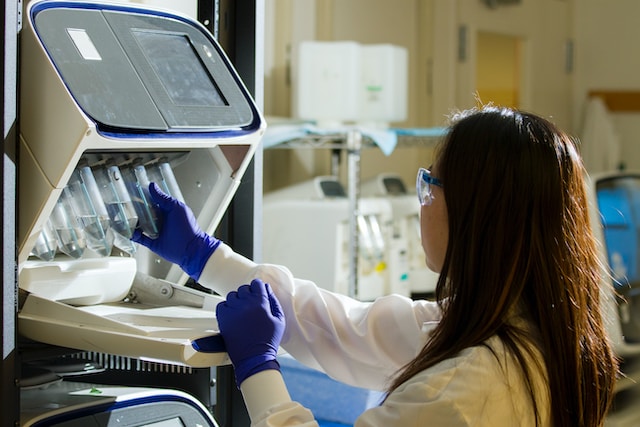The healthcare field has seen remarkable advancements in recent years thanks to rapid technological progress. These advancements transform how medical professionals diagnose, treat, and care for patients. From artificial intelligence (AI) to telemedicine, innovative technologies are revolutionizing the healthcare industry, making it more efficient, accessible, and patient-centric. We will explore some of the key advancements in medical technology and discuss their potential impact on the future of healthcare.
AI in Healthcare
Artificial intelligence has emerged as a game-changer in healthcare. With its ability to process vast amounts of data and learn from patterns, AI is revolutionizing medical research, diagnostics, and treatment plans. Machine learning algorithms can analyze medical images, such as X-rays and MRIs, with high accuracy, assisting radiologists in detecting diseases like cancer at early stages.
AI-powered chatbots and virtual assistants are used in healthcare facilities to provide personalized patient care and support. These AI-driven systems can answer patients’ queries, offer medical advice, and even triage cases based on symptom analysis. They improve access to healthcare, especially in remote areas where medical resources are scarce.
AI enables precision medicine by analyzing an individual’s genetic makeup and tailoring treatment plans accordingly. This approach enhances the effectiveness of treatments and minimizes adverse effects, leading to better patient outcomes.
Telemedicine
Telemedicine has witnessed significant growth and adoption, especially during the COVID-19 pandemic, when physical distancing became necessary. This technology allows patients to consult with healthcare providers remotely, using video calls and other digital communication tools. Telemedicine eliminates geographical barriers, making healthcare accessible to individuals in remote locations and reducing the need for in-person visits.
By leveraging telemedicine, patients can receive timely medical advice, follow-up consultations, and prescription renewals without leaving their homes. This approach not only saves time and travel costs for patients but also reduces the burden on healthcare facilities, enabling them to prioritize critical cases. Telemedicine also offers mental health support through virtual therapy sessions, promoting overall well-being.
Wearable devices and remote monitoring systems have become integral to telemedicine. These devices track vital signs, such as heart rate, blood pressure, and glucose levels, and transmit the data to healthcare providers in real time. Physicians can monitor patients remotely, identify anomalies, and intervene promptly, ensuring timely intervention and proactive care.
Future Implications
- Personalized Healthcare: Integrating AI and genomics will enable precise diagnostics and personalized treatment plans based on an individual’s genetic makeup, lifestyle, and medical history. This approach will maximize treatment efficacy and minimize adverse effects.
- Remote Surgery and Robotic-Assisted Procedures: Surgeons can remotely perform complex surgeries with the help of robotic systems. This advancement will improve access to specialized surgical expertise and enhance patient safety.
- Data-driven Healthcare: Big data analytics and AI algorithms will analyze vast healthcare data to identify disease patterns, predict outbreaks, and develop preventive strategies. This data-driven approach will facilitate early interventions and improve population health.
- Blockchain in Healthcare: Blockchain technology will ensure secure and interoperable sharing of medical records, enhancing data privacy and streamlining healthcare processes. Patients will better control their health information and facilitate seamless care coordination.
Advancements in medical technology are revolutionizing the healthcare industry, paving the way for a more efficient, accessible, and patient-centric future. AI enhances diagnostics, treatment, and personalized medicine, while telemedicine bridges geographical gaps and enables remote patient care. We can expect further breakthroughs in personalized healthcare, remote surgeries, data-driven strategies, and blockchain-enabled medical records as we move forward. The future of healthcare is bright, thanks to these remarkable advancements in medical technology.





